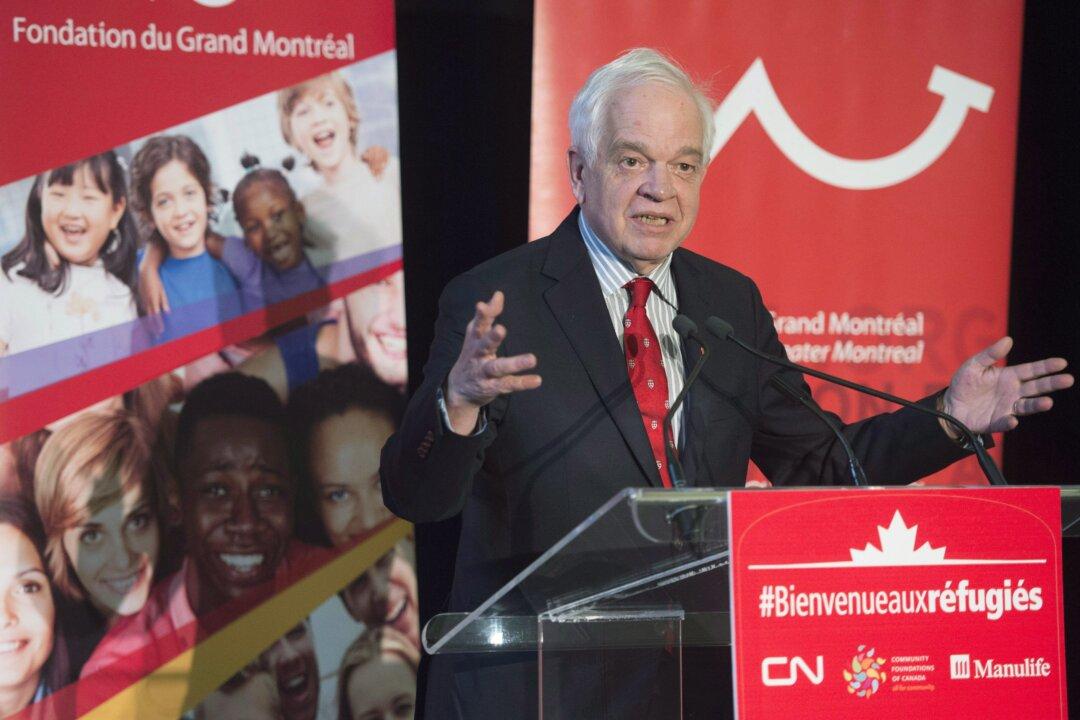OTTAWA—The fact some newly arrived Syrian refugees are turning to food banks to supplement their own pantries can be partially explained by a “cultural element,” the immigration minister said May 19.
Food banks from Halifax to B.C. have reported serving hundreds of Syrians who have come to Canada since November, the month the Liberal government launched a major resettlement program to bring 25,000 people by the end of February.
Immigration Minister John McCallum acknowledged that the income assistance is not high, but said that’s not the only reason Syrians are showing up at food banks.
“There may be a cultural element. You have to remember the refugees are coming from an entirely different world,” he told a Senate committee studying the Syrian refugee resettlement program.
“Our world is very different than their world. Sometimes they have been living in refugee camps; maybe it’s the norm to be offered meals. I’m not overly concerned about this.”
Very few of the Syrians settled in Canada are from refugee camps—the vast majority of over 4 million refugees from the Syrian war don’t live in U.N. camps but in cities or informal settlements in the region.





